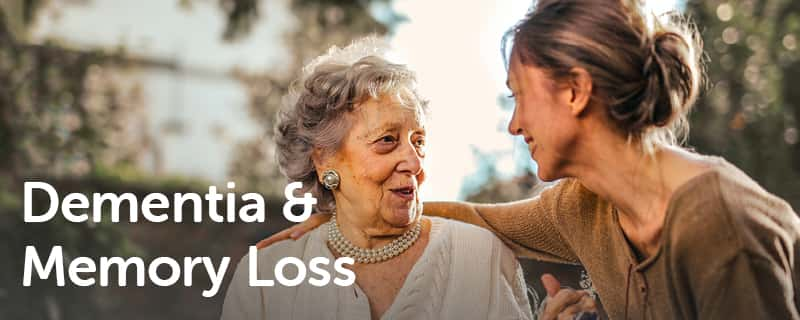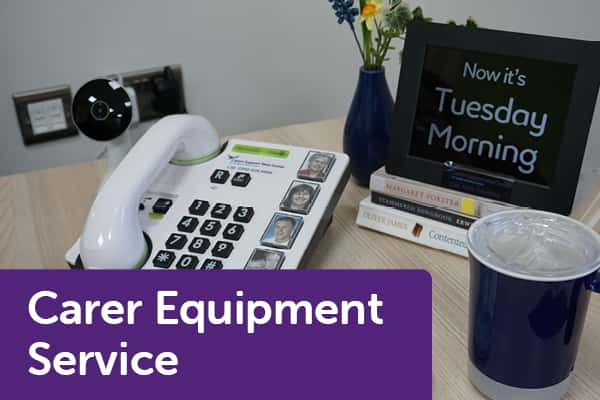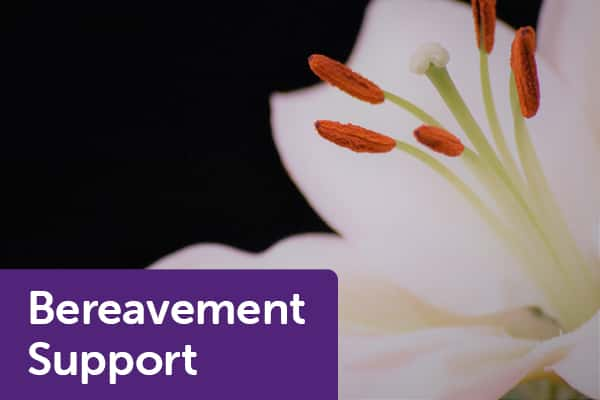Registering with us as a carer opens the door to a wide range of free support to suit your needs, including:
- Tailored information and support to help you with your caring role
- Opportunities to meet other carers who may have similar experiences to you
- Workshops which provide training and learning on topics such as welfare benefits
- Information about local and national organisations
- Regular newsletter
If you would like more information about any of these services, please call us on 0300 028 8888 or email info@carerssupport.org.uk
If you’re not already subscribed and would like to be added to the mailing list for our monthly updates call our Response Line on 0300 028 8888 of email us at info@carerssupport.org.uk and ask to be added to our subscription list.
Dementia Carers Face-to-Face Carer Groups and Events
We are delighted to welcome our carers back for face-to-face meetings together with our partners from Sage House. Come to one of our supportive groups where you can share with other dementia carers and find support from Carers Support West Sussex together with experts from Sage House.
Dementia Carers Online Carer Groups and Events
Meet and share with other dementia carers. Our carer groups are an opportunity to talk about your caring situation and gain further support from other carers, as well as wellbeing workers from Carers Support West Sussex and representatives from our partner organisations including Alzheimer's Society and Sage House.
Hospital Memory Navigators – North and South
Our memory navigator staff in the north and south of the county work in both acute and community hospitals or dementia clinics for carers of someone living with dementia or memory issues. They work directly with families affected by dementia to enable the family and friend carer along with the person they care for to access both local and county wide support, including access to carer well-being grants and funds, carer assessment, carer group activities, and support and to maintain social networks within their local community.
Bilingual Memory Navigator - Crawley
Our bilingual worker is more than an interpreter, using her culturally empathic and/or bilingual skills to help encourage families who have concerns about someone they care for experiencing memory loss related issues.
She supports the family and not only the main carer as there may well be more than one person in the family carrying out a caring role.
Support with finances
We will help identify any concerns you have about your caring role, finance, your goals, and how we may be able to help you achieve these. You may be entitled to certain benefits and we can book you in with our benefits adviser for a session to talk about your finances. See more on our Benefits Advice Service page here.
As a carer registered with us, you can also apply for a grant from our Carer Health and Wellbeing Fund and for equipment from our equipment service. See more on our Carer Equipment Service page here.
Tips for caring for someone with Dementia
You can boost self-esteem, help to avoid depression and even improve sleep by encouraging your cared for to:
- Stay active for both physical and mental wellbeing
- Meet with other people as this can help with skills and memory
- Make everyday tasks as simple as possible and allow plenty of time
- Driving and dementia – what you need to know
- Keep important items in the same place
- Use visual aids, such as photos on cupboards showing the contents
- Remove trip hazards. See this useful guide from Dementia UK.
- If the person gets up during the night, leave a light on – better still request a sensor light from us at Carers Support West Sussex, provided as part of our Carer Equipment Service.
- Talk about events or themes from the person’s past, using prompts such as photos, souvenirs or music. West Sussex Libraries have a useful reminiscence collection.
- Talk to other dementia carers online.
Useful Links
Sage House (Tangmere) Dementia Support is an exciting local charity working in partnership with voluntary and charitable organisations, the NHS, West Sussex County Council and other statutory organisations, to create a unique community hub for dementia. Designed to truly enhance the wellbeing and quality of life for local people living with dementia, their family and carers.
Alzheimer’s Society Their mission is to transform the landscape of dementia forever. Until the day we find a cure, they strive to create a society where those affected by dementia are supported and accepted, able to live in their community without fear or prejudice.
NHS Dementia Choices This site offers information for people with dementia and their families and friends. It aims to raise awareness of dementia, as well as help people create networks and better understand the impact of the condition. There are also links to lots of information on dementia and sources of local and national support.
Tuvida offers a full range of flexible services for adults with various disabilities or health conditions. This includes day, evening and night services, self funding services and social clubs.
Age UK West Sussex Brighton and Hove Your one stop shop for advice and support across the county.
Admiral Nurses Admiral Nurses provide the specialist dementia support that families need. When things get challenging or difficult, their nurses work alongside people with dementia, and their families: giving them one-to-one support, expert guidance and practical solutions.
Know Dementia Telephone support, a visit to your home, time to talk, social activities through ‘Moments’ sessions: Sporting Moments, Memory Moments Cafés, Green Moments and Musical Moments’. Opportunities to meet others in the same position as you, advice on finance and care provision, training on how to cope with the diagnosis, help to set up a dementia friendly community.
Burgess Hill Dementia Action Alliance
Chichester Dementia Action Alliance
Crawley Dementia Action Alliance
Haywards Heath Dementia Action Alliance
Horsham District Dementia Action Alliance
Bognor Dementia Action Alliance
Selsey Dementia Action Alliance
Dementia Adventure Dementia Adventure is a registered charity that is dedicated to supporting people to live well with dementia and have a sense of adventure in their lives. We believe in the benefits to be gained from regular, active engagement with the natural world.
tide is a UK-wide charity aiming to change the way carers are recognised, valued, and treated. It tells carer stories and offers a wide range of online courses and support groups for carers.
Carers Health Team are a team of health professionals who aim to promote the health and wellbeing of carers. They are a free service provided by Sussex Community NHS Trust providing support for carers over the age of 18 registered with a West Sussex GP. They work directly with carers and will develop individual strategies for each carer with an aim to reduce the strain of coping with their caring role.
Meri Yaadain (My Memories) is an organisation which supports Black Asian Minority Ethnic (BAME) carers who face barriers in accessing information, services and advocacy.
Bring Dementia Out addresses the challenges faced by LGBT people living with dementia and those who are supporting them.
Blogs for dementia carers
See our blogs below for stories of how carers are coping with dementia.
A carer who has written movingly about dementia and living grief and how taking part in our recent bereavement workshops have helped her. Read her story here.
Life coach Amanda Jones, who has had wide experience of working with people with dementia, has written a blog for us about regaining your sense of self as a carer. Read her thoughts here.
And one of our newest carers talks about the challenges and rewards of caring for someone with dementia. Read his story here.
You can also find a host of other blogs on the Alzheimer’s Society website at https://www.alzheimers.org.uk/blog
Dementia Adventure have written about the positive benefits of getting into nature for both our physical and mental health. See here.
Finally, you can read about how Carers Support West Sussex have helped support our carers during this last year. See here.
















